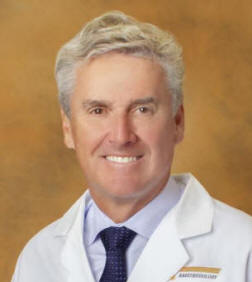
The Great Smoky Mountain Journal
Staff Reports
Posted: Sunday, January 21, 2018 11:22 AM
UT Medical Center To Implement New Opiod Abuse Care Protocols
The University of Tennessee Medical Center implemented several new measures today
aimed at helping patients who come to the facility with an IV infection that’s due to drug
abuse. The pilot program launched at the medical center includes a specific set of
protocols created to tackle a portion of the opioid abuse epidemic that’s impacting the
nation and the East Tennessee region.
“While we may have a very small number of
patients who fall into this category at any
given time, we recognize we have the opportunity to help one individual
at a time
impacted by the opioid epidemic plaguing our state and our country,”
said Dr. Jerry
Epps, senior vice president and chief medical officer at The University
of Tennessee
Medical Center. “To provide that assistance, we’re implementing measures
to put opioid
dependent individuals on the path to recovery, while also providing the
optimal care
environment for our physicians and team members to begin that
treatment. We
anticipate that some will question the measures, but must emphasize that
their purpose
is, first and foremost, for the benefit of the patients.”
The rules, according to Epps, are
clear. Even before being admitted, a patient must sign
a form agreeing to all components of the medical center’s IV Drug Use
Associated
Infection Plan of Care. Epps says the goal of the new protocols is to
establish a
framework that initially focuses on treating the infection, but later
provides access to
treating the addiction. Officials from the medical center are working
with other agencies
in the region to identify, whenever possible, specialized inpatient
addiction treatment
facilities where patients can transfer once their medical care has
concluded.
“We’ve all seen and heard too many
stories of those in our community losing their lives
and of the adverse impact on families due to this terrible addiction,”
said Joe Landsman,
president and CEO of The University of Tennessee Medical Center. “As the
region’s
academic medical center, we have an obligation to take a leadership role
in addressing
and seeking solutions for serious health-related matters facing our
community, such as
the opioid epidemic.”
The mission of The University of Tennessee Medical Center, the region’s
only hospital
to achieve status as a Magnet® recognized organization, is to serve
through healing,
education and discovery. UT Medical Center, a 609-bed, not-for- profit
academic
medical center, serves as a referral center for Eastern Tennessee,
Southeast Kentucky
and Western North Carolina.
The medical center, the region’s only
Level I Trauma
Center, is one of the largest employers in Knoxville. For more
information about The
University of Tennessee Medical Center, visit online at
www.utmedicalcenter.org.

